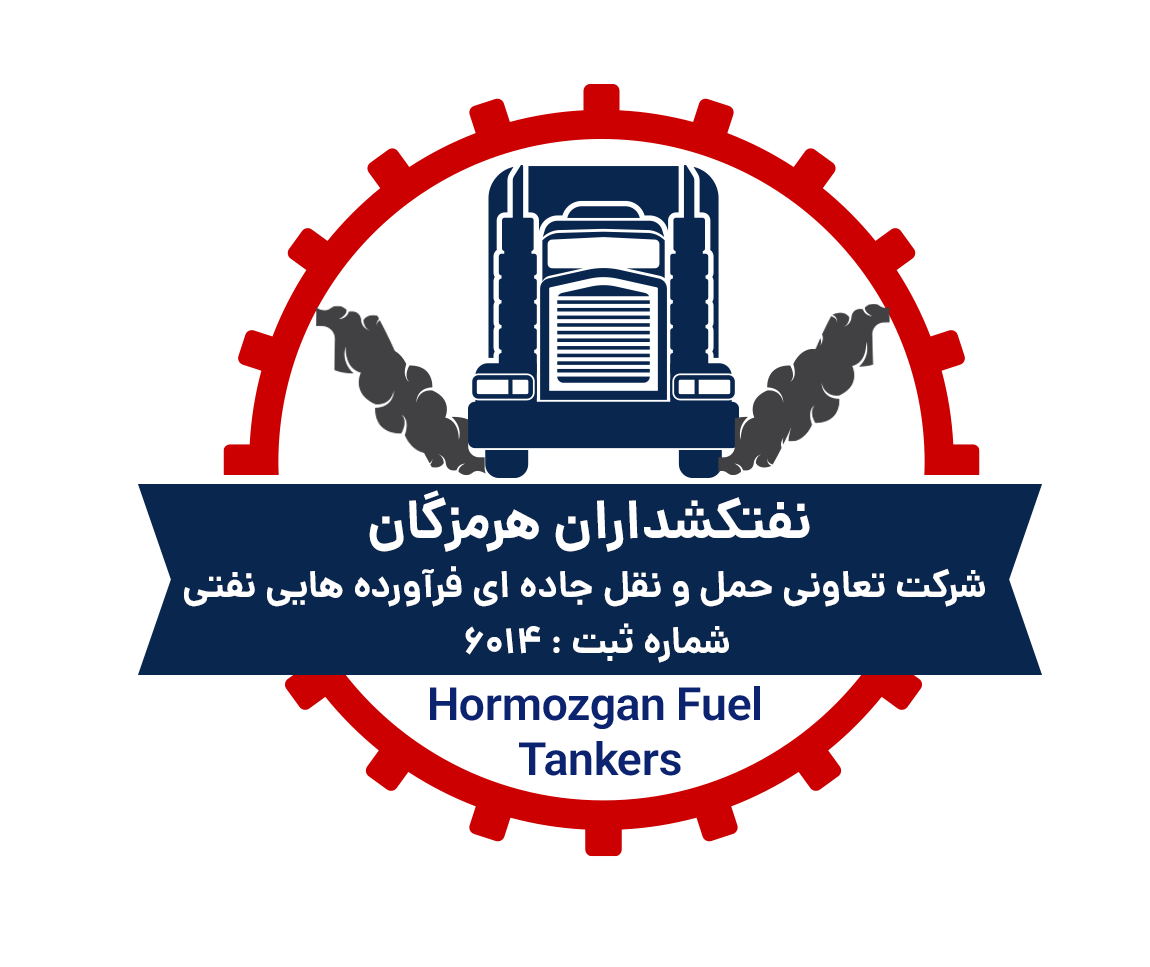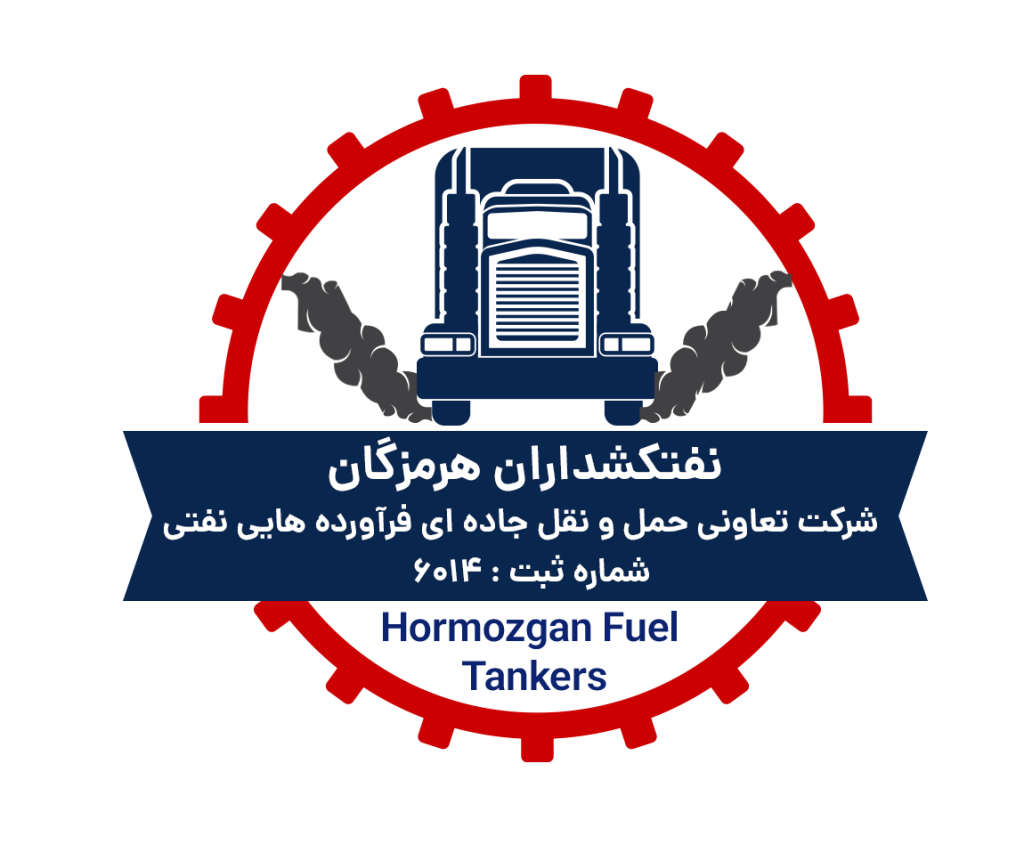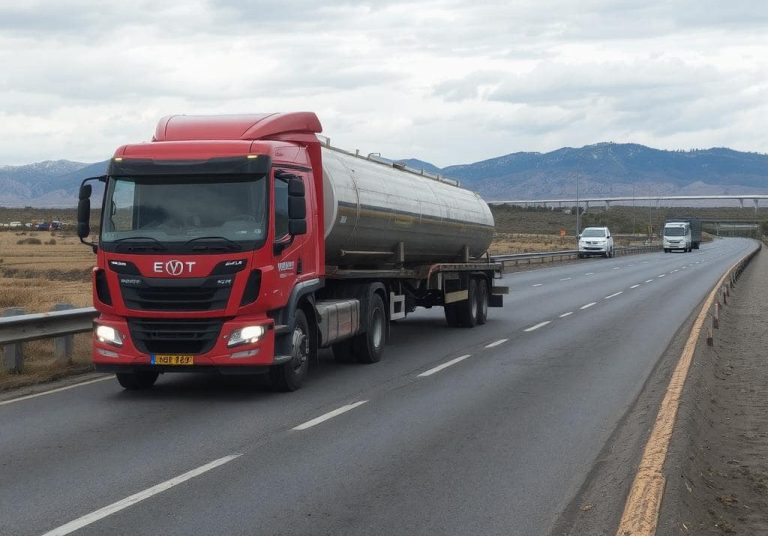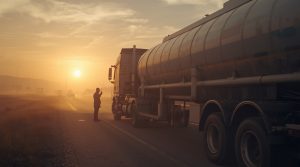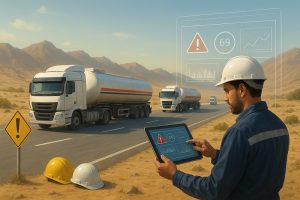Fuel transportation by road is one of the most important and vital sectors of the energy industry. Petroleum products such as gasoline, diesel, LPG and other petroleum derivatives are widely transported by road due to their key role in providing energy for transportation, industrial production and public services. However, fuel transportation is associated with significant risks, including safety and environmental hazards. To mitigate these risks and ensure safe transportation, it is necessary to be well acquainted with the challenges in this area and to apply appropriate solutions to manage them.
1. Safe transportation of fuel on roads
Due to the nature of petroleum products, fuel transportation on roads is always associated with potential hazards such as fire, explosion and chemical leakage. These hazards can not only cause human and financial losses, but also have serious environmental and economic consequences. Also, any accident or disruption in fuel transportation can cause shortages in the market, increase prices and public dissatisfaction. Therefore, safe fuel transportation is of particular importance and requires careful management and compliance with high safety standards.
2. Challenges of transporting fuel on roads
Safe fuel transportation on roads faces a complex set of challenges that must be addressed to reduce risks and improve efficiency. Some of the most important of these challenges are: – **Road hazards and accidents:** One of the greatest risks of fuel transportation on roads is traffic accidents. Poor road conditions, risky driver behavior, and vehicle technical problems can lead to accidents. These accidents may cause fuel leaks and even fires or explosions, which have very destructive consequences. – **Environmental damage:** If fuel leaks from transport tankers, there is a possibility of contamination of soil, groundwater, and natural resources. Oil spills can lead to environmental disasters and have irreversible impacts on natural ecosystems. – **Quality of the transport fleet:** Many fuel trucks and tankers face technical problems due to lack of proper maintenance or being old. These problems can lead to technical failures and accidents during transportation. – **Lack of strict supervision and control:** In many cases, the lack of strict supervision systems for fuel transportation on the roads leads to safety standards not being properly observed. This can lead to increased risks during transportation.
3. Strategies to improve fuel transportation safety on roads
To address the above challenges, it is necessary to implement a set of effective solutions to increase safety and reduce risks in fuel transportation on roads. Some of these solutions include: – **Training drivers and personnel:** Drivers of fuel vehicles should undergo specialized training to learn how to deal with emergencies such as fuel spills or fire incidents. Also, ongoing training on safety rules and regulations can help reduce the possibility of human errors. – **Using modern technologies:** Smart fleet management systems and the use of the Internet of Things (IoT) can help closely monitor the conditions of vehicles and transportation routes. These systems allow real-time monitoring of the conditions of fuel tankers, material temperatures, and transportation routes, and can prevent accidents. – **Improving vehicle quality:** Fuel tankers and trucks should be regularly inspected and maintained to ensure their technical health. Using newer, safer vehicles that are designed to meet current standards can help reduce technical risks. – **Develop and enforce stricter laws:** Governments and regulatory bodies should develop strict laws and regulations for fuel transportation on roads. These regulations should include speed limits, vehicle technical requirements, and safety standards. Also, strict monitoring of the implementation of these regulations can help improve safety. – **Use of special routes:** Creating special transport routes for fuel tankers can help reduce the risk of accidents. These routes should have appropriate infrastructure and sufficient supervision to minimize road risks.
4. The role of technology in increasing fuel transportation safety
New technologies play an important role in improving the safety of fuel transportation on the roads. The use of smart and advanced technologies can help reduce risks and increase efficiency in fuel transportation: – **Tracking and monitoring systems:** The use of real-time tracking systems and GPS to monitor the movement of fuel-carrying vehicles can help prevent accidents and optimize fleet management. These systems allow for immediate alerts in the event of any problems. – **Alarming and condition control systems:** The use of smart sensors to monitor the physical condition of tankers and fuel temperature can prevent incidents such as explosions or leaks. These sensors send the necessary alerts to the driver and control centers if they detect any unusual changes in the condition of the fuel or vehicles. – **Drones and robots:** The use of drones to monitor transportation routes and check the condition of roads can help identify problems faster and intervene early. Also, inspection robots can be used to check the condition of tankers and vehicles to reduce technical risks.
5. Preventive measures in crisis management
Although compliance with safety standards and the use of advanced technologies can help reduce the occurrence of accidents, the possibility of crises such as accidents and oil spills still exists. Therefore, planning for crisis management and being prepared to respond quickly to emergencies is of great importance. Some preventive measures include the following: – **Development of crisis management plans:** Companies should have comprehensive and standardized crisis management plans that include rapid responses in the event of accidents, evacuation strategies for affected areas, and reduction of environmental impacts. – **Establishment of rapid response teams:** Specialized teams should be prepared to deal with potential accidents on fuel transportation routes. These teams should be prepared with appropriate equipment and training to control and manage oil spills, extinguish fires, and prevent the spread of pollution.
Conclusion
Fuel transportation on roads requires close monitoring and compliance with safety standards due to the inherent hazards of petroleum products and their products. Despite various challenges, including accidents, fuel spills, and environmental damage, risks can be minimized by using new technologies, continuous training of personnel, improving the transportation fleet, and strengthening the regulatory infrastructure. In addition, developing crisis management plans and preparing for rapid response to emergencies can help improve safety and reduce human and financial losses. Safe fuel transportation not only contributes to a sustainable energy supply, but also preserves a healthy environment and increases public trust.
